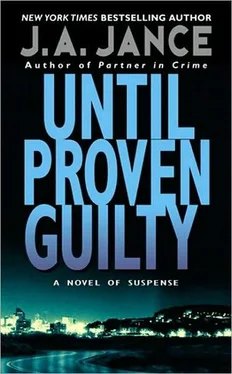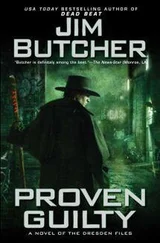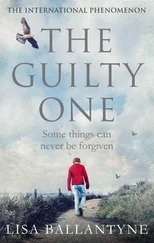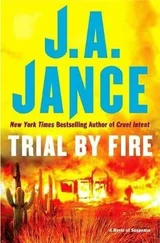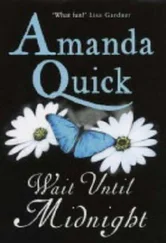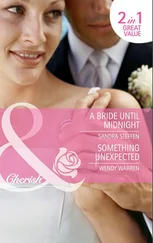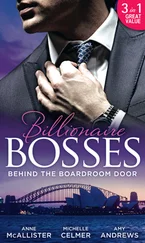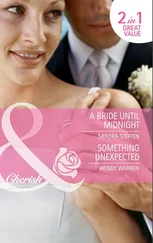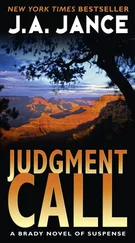J. Jance - Until Proven Guilty
Здесь есть возможность читать онлайн «J. Jance - Until Proven Guilty» весь текст электронной книги совершенно бесплатно (целиком полную версию без сокращений). В некоторых случаях можно слушать аудио, скачать через торрент в формате fb2 и присутствует краткое содержание. Жанр: Детектив, на английском языке. Описание произведения, (предисловие) а так же отзывы посетителей доступны на портале библиотеки ЛибКат.
- Название:Until Proven Guilty
- Автор:
- Жанр:
- Год:неизвестен
- ISBN:нет данных
- Рейтинг книги:4 / 5. Голосов: 1
-
Избранное:Добавить в избранное
- Отзывы:
-
Ваша оценка:
- 80
- 1
- 2
- 3
- 4
- 5
Until Proven Guilty: краткое содержание, описание и аннотация
Предлагаем к чтению аннотацию, описание, краткое содержание или предисловие (зависит от того, что написал сам автор книги «Until Proven Guilty»). Если вы не нашли необходимую информацию о книге — напишите в комментариях, мы постараемся отыскать её.
Until Proven Guilty — читать онлайн бесплатно полную книгу (весь текст) целиком
Ниже представлен текст книги, разбитый по страницам. Система сохранения места последней прочитанной страницы, позволяет с удобством читать онлайн бесплатно книгу «Until Proven Guilty», без необходимости каждый раз заново искать на чём Вы остановились. Поставьте закладку, и сможете в любой момент перейти на страницу, на которой закончили чтение.
Интервал:
Закладка:
“Go back over every shred of information we have so far to see if you can find anything new.”
We had reached the Hillclimb, a steep flight of stairs that leads from the waterfront up through the Public Market and back into the heart of the city. I felt beaten, defeated. I had turned on her, given tacit approval to Peters to go ahead and scrutinize Anne’s past. Suddenly I was more than a little afraid of what he might find there.
We climbed the stairs without speaking. The market was jammed with vegetable and fish merchants setting out their wares. The boisterous activity was totally at odds with how I felt. We came out of the market at First and Pike. Peters turned right and started back toward the Public Safety Building.
I stopped. “I’m going to go talk to her,” I called after him.
Peters came back. “Why?”
“I have to. I have to give her a chance to tell me. I want to hear it from her.”
“Suit yourself,” Peters said with a shrug.
I didn’t go directly back to the Royal Crest. Peters’ questions hadn’t fallen on deaf ears. Why hadn’t she told me? More to the point, what had she told me? Very little, I decided. She had said she had been married once, but she hadn’t mentioned her husband’s profession or his subsequent suicide. That’s not surprising. Suicide is something that hangs around forever, dropping load after load of guilt on the living.
Anne had divulged little of her family background, other than bits and pieces about Patty. And she certainly hadn’t mentioned being institutionalized; but then, that’s hardly something you go around advertising. I know I wouldn’t.
Come to think of it, there was a lot I hadn’t told her, either, gory details in the life and times of J. P. Beaumont. I had touched briefly on my relationship with Karen, but that was all. It was as if Anne and I had an unspoken agreement not to let the past taint our present or our future. On the one hand, I could rationalize and justify her not telling me her life story. On the other hand, I was angry about it.
I walked for a long time, trying to think what I would say to her. There wasn’t the smallest part of me that accepted the idea she might have been responsible for Angela Barstogi’s death. I finally turned my steps homeward. I stopped and bought a P.I. from a vending machine on the corner. I remembered her reaction when I had asked her about Patty. I had an obligation to be there when she read the article. After all, it was because of me that she was drawing Maxwell Cole’s fire.
The halls in high-rises are less well soundproofed than the apartments. As I approached my door, I could hear Anne’s voice from inside the unit. That surprised me because I expected her to be there alone. I paused before fitting my key in the lock. Listening through the door, I could hear she was on the telephone, that she was finishing a conversation. I turned my key in the lock and pushed the door open.
I expected to find her on the couch next to the phone. Instead, she was halfway across the living room, eyes frantic, face ashen. She looked at my face blankly, with no sign of recognition. All I could think was that she had laid hands on the article before I got there.
I moved across the room quickly and grasped her by the shoulders. She was shaking, quivering all over like someone chilled to the bone. “Anne, Anne. What’s wrong? Are you all right?”
For a long second we stood there like that, with me holding her. I don’t think my words registered at all. “What are you doing here?” she asked.
“I came to check on you. I was afraid you’d read it by yourself. Have you read it?” She was struggling, trying to escape my grasp. Her eyes stared blindly into mine. She didn’t answer.
“Who was that on the phone?” I demanded. “Who were you talking to?”
My words finally penetrated and she seemed to focus on my face, to hear what I said. “No one,” she stammered. “It was a wrong number.”
I shoved her away from me, sending her reeling into the leather chair. “Don’t lie to me, Anne; for God’s sake don’t lie to me!” I wanted to shake her, force her to tell me the truth. I started toward the chair, but the look on her face stopped me. In seconds her face had been transformed. She might have put on a mask. A calm, cold mask.
“It was business,” she said, her voice flat and toneless.
“Yours or mine?”
“Mine,” she said.
“Why did you tell me it was a wrong number?”
“I was upset.”
I turned back to the couch and sat heavily, the weight of the world crushing my shoulders. When I looked at her again, she was under control and so was I, but something was dreadfully wrong. I forced my tone to be gentle, made the words come slowly, the way you might if you were speaking to someone who didn’t know the language. “Was it about the newspaper article?”
She blinked, puzzled. “What article?”
“Maxwell Cole’s. In today’s paper. It talks about Milton Corley. Tell me about him.” I handed her the paper, open to Maxwell Cole’s column. She read it quickly, then dropped it in her lap. She looked up at me.
“Why didn’t you tell me, Anne? You left me wide open to attack.”
Her eyes, fixed on mine, didn’t waver. “I didn’t think it mattered,” she said.
“But it does matter. You should have told me. Yourself.”
“What do you want to know?”
“Tell me about Milton Corley. Why did you marry him?” It was not a question I had expected to ask. It was the wounded cry of a jealous suitor, not a professional cop with his mind on his job.
“Because I loved him,” she answered.
“Loved him or used him?”
“Used him first, loved him later.”
Maybe she was being honest with me after all. “What about J. P. Beaumont? Is it the same with him?”
She raised her hands in a helpless gesture, then dropped them back in her lap. She nodded slowly. “At first I only wanted information.”
I felt my heart constrict. “And now?”
“I love you.” They were the words I wanted to hear, but I couldn’t afford to believe them.
“Why?” The word exploded in the room. “Why do you love me?”
“Because you found the part of me that died when Milton did. I told you that last night.”
“You expect me to believe that?”
“Yes. It’s the truth.”
My gaze faltered under her unblinking one. “Tell me about your book. I want to read it.”
“All right,” she said. “After I get it back from Ralph. I sent it to Phoenix with him. He’s having it typed for me. I have to revise the last chapter.”
“Why?”
“I made a mistake.”
“What kind of mistake?”
She looked at me as if puzzled. “The kind that shouldn’t be made if you’re any kind of writer. Why all the questions?”
“I wanted to hear this from you, Anne. You should have told me. I shouldn’t have had to read it in the newspaper. It makes you look suspicious.”
For several long minutes we sat without speaking. “What about us?” she asked.
“I don’t know,” I said. “I’ll have to give it some thought.” I got up to leave. I had touched the personal issue and skirted the basic one. I had to ask. I had to have the answer from Anne Corley’s own lips. “Did you have anything to do with Angela Barstogi’s death?”
She heard the question without flinching. “So that’s what’s bothering you,” she said in a monotone. She dropped her head in her hands. “No, Beau, I didn’t. I was in Arizona. Check with United. Check with anybody.”
“Do you know someone named Uncle Charlie?”
She shook her head. I went to the door and stood there uncertainly, my hand on the door-knob. I didn’t know whether to leave or apologize. “I didn’t think you did, but I’m getting some heat thanks to Maxey. I’d better go back to the office,” I said at last. “I’ve got work to do.”
Читать дальшеИнтервал:
Закладка:
Похожие книги на «Until Proven Guilty»
Представляем Вашему вниманию похожие книги на «Until Proven Guilty» списком для выбора. Мы отобрали схожую по названию и смыслу литературу в надежде предоставить читателям больше вариантов отыскать новые, интересные, ещё непрочитанные произведения.
Обсуждение, отзывы о книге «Until Proven Guilty» и просто собственные мнения читателей. Оставьте ваши комментарии, напишите, что Вы думаете о произведении, его смысле или главных героях. Укажите что конкретно понравилось, а что нет, и почему Вы так считаете.
